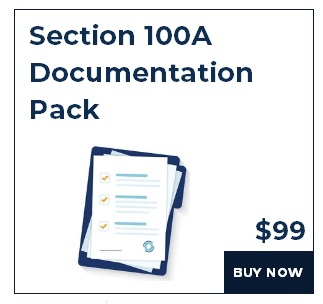
Upcoming events
Where should the money go? Understanding New ATO PCG 2021/D2 (Webinar)
On Friday at 11am AWST, Birchstone Tax Law will be hosting a free webinar on the new ATO PCG 2021/D2. To find out more details and register, click here. If you can’t make it, register and we’ll send you a copy of the recording.
Dan’s Deliberations
The ATO’s long awaited revised guidelines on the allocation of profits within professional firms (PCG 2021/D2) were released in March 2021. The guidelines apply to ‘professional firms’, including accountants, lawyers, financial planners, doctors, architects, and engineers. It sets out the ATO’s risk-based approach to the allocation of professional firms’ profits (or, in other words, whether the ATO considers too much income has been ‘split’ to related parties).
The guidelines have been criticised by a number of the professional bodies. Those criticisms include:
- A lack of technical legal basis underpinning the guidelines. The guidelines explicitly state that it ‘is not a technical analysis of the judicial decisions in this area’.
- The guidelines single out professional service firms. It’s difficult to provide a rational argument that income derived by, say, a plumbing or management consulting business, should be treated differently to the income from a professional service firm.
- There’s no general principle that the ‘owner’ of a business must receive any particular amount of compensation or remuneration for the individual’s ‘efforts, labour and application of skills’. Absent the application of specific statutory provisions (e.g. the PSI rules and Part IVA), a business ‘owner’ can decide whether to receive a salary/wage from the business, a share of profits of the business (e.g. in the form dividends or distributions) or a combination of both.
- The guidelines do not create a safe harbour (unlike the previous guidelines). Even if you fall within the green zone, your structure may still be reviewed.
Although the guidelines are still in draft and there may be changes when it ultimately finalised with effect from 1 July 2021, the ramifications of the ATO using the guidelines to assess the tax risk of our own businesses, and our clients’ businesses, will be significant.
Register here for our webinar this Friday to learn more about the ATO’s new guidelines.
ATO Update
Taxation Determination: Receiver’s obligations
The ATO has released TD 2021/5 which outlines the Commissioner’s view of a receiver’s obligation to retain money under section 254 of the Income Tax Assessment Act 1936 (Cth) where the entity in receivership has an assessed post-appointment tax liability.
Draft Practical Compliance Guideline: Intangibles Arrangements
The ATO has released PCG 2021/D4 which sets out their compliance approach to international arrangements connected with the development, enhancement, maintenance, protection and exploitation of intangible assets and/or involving a migration of intangible assets.
Rulings
The ATO has issued the following rulings:
- Class Ruling CR 2021/35 – Coca-Cola Amatil Limited – Scheme of arrangement and dividend;
- Class Ruling CR 2021/35 – CSIRO – Studentship or internship stipends; and
- Product Ruling PR 2021/4 – Income tax: taxation consequences for a customer entering into an XLD Grain and Fertiliser Prepayment Program with XLD Commodities Pty Ltd.
GST determinations: EFTPOS interchange services
Two GST determinations on the administrative requirements for EFTPOS interchange services have been registered:
State Taxes
NSW: Land tax discount for build-to-rent properties
Revenue NSW has issued Revenue Ruling G 014 which provides guidance on when build-to-rent properties will be eligible for the 50 per cent reduction in the value of land for land tax purposes.
Budget 2021-22 (Vic): Tax measures
The 2021-22 Victorian Budget delivered a number of tax measures, including:
- increasing the land tax-free threshold from $250,000 to $300,000;
- introducing a windfalls gains tax on profits associated with the re-zoning of land;
- increase the rates of transfer duty for properties over $2 million; and
- introducing a stamp duty concession for CBD properties in Melbourne worth up to $1 million.
Cases
Virgin Australia Airlines Pty Ltd v FCT [2021] FCA 523 – Car parking fringe benefits
The Federal Court has held that the taxpayer company did not provide car parking fringe benefits to its employees at various airports around Australia.
Virgin Airlines entered into contracts with the Perth, Brisbane and Sydney Airports to provide car parking spaces adjacent to the airport. Virgin gave its flight and cabin crew access cards to the car park at the airport nearest to the location where the crew members lived. During their rostered shifts, the flight and cabin crew employees performed their duties at both airport terminals and on the aircraft. On the basis that the Flight and Cabin Crew employees’ ‘primary place of employment’ (required by section 39A of the FBT Assessment Act 1968 (Cth)) was their home base airport terminal, Virgin was assessed as providing a car parking fringe benefit to these staff members. Following their objection being disallowed, Virgin appeal to the Federal Court.
The key issue in dispute was where the Flight and Cabin Crew employees’ primary place of employment was; the aircraft or the home base airports. The Court held that the flight and cabin crew’s primary place of employment was an aircraft if they operated on just one aircraft during the day, or where they worked on more than one aircraft, they did not have a primary place of employment at all. Therefore, the Court held that the flight and cabin crew employees could not be regarded as being parked in the vicinity of their primary place of employment, meaning that there was no car parking fringe benefit provided.
Mussali v FCT [2020] FCA 544 – Deductibility of rent pre-payments
The Full Federal Court has held that rent pre-payments to secure a lower rent were not deductible under s 8-1 of the Income Tax Assessment Act 1997 (Cth).
The Mussalli Family Trust (Trust) operated a series of McDonald’s Family Restaurants as franchisee from McDonald’s Australia Limited. Under the lease arrangement, the Trust was required to pay a base rent amount payable monthly plus a percentage rent amount calculated by reference to monthly gross sales. The Trust exercised an option under the lease agreement to reduce the percentage rent payable by making upfront payments of ‘pre-paid rent’. The Trust claimed deductions under 8-1 of over $10 million (over a period of 10 years) for these upfront payments. The ATO disallowed deductions for the upfront payments and issued amended assessments to the Trust, and consequential amended assessments to the beneficiaries of the distributions from the Trust for the 2012-15 years.
The issue before the Court was whether the prepayments of rent were of income or capital nature. In line with the first instance judgment, the Full Federal Court held that the upfront payments were of a capital nature and not deductible under section 8-1. The Full Federal Court held that the payments were capital on the basis that the payments were made to secure an enduring advantage, which was the right to pay the lesser percentage rent for the term of the lease arrangement and any renewal. Further, the Court reasoned that it is not necessarily the case that a payment in substitution of a revenue outgoing must be on revenue account.
Legislation
Draft legislative instruments: Superannuation paid to former ADF members
The ATO has released two draft legislative instruments which set out the tax treatment of superannuation paid to former ADF members:
- MS 2021/D1 sets out the alternative method for calculating the tax free and taxable component of a superannuation benefit applying to relevant superannuation benefits paid before 1 July 2021; and
- MS 2021/D2 sets out the alternative method for calculating the tax free and taxable component of a superannuation benefit applying to relevant superannuation benefits paid on or after 1 July 2021.
Draft legislation: Exempt current pension income
The Treasury has released exposure draft materials to simplify requirements for superannuation funds in relation to calculating the exempt current pension income (ECPI).

